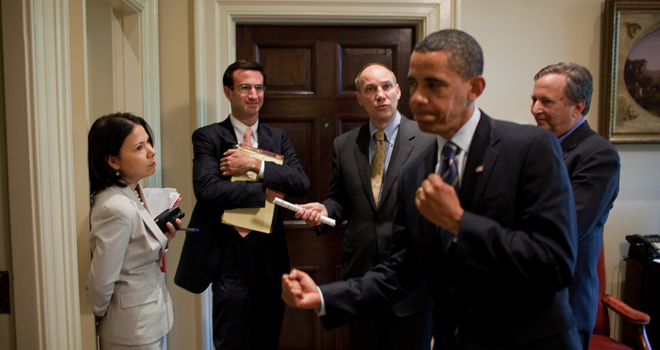After two weeks of controversy, the consulting giant McKinsey & Company has broken its silence. The group came under fire from health care reformers for publishing a contrarian study finding that President Obama’s health care reform law will prompt large numbers of employers to stop offering health insurance benefits — and for refusing to publish its methodology or survey results.
Under public pressure from top Democrats in Congress and from professional peers, the firm has issued a long statement partially defending the study and explaining the roots of the kerfuffle. McKinsey has also released both the survey materials and results that provided the data from which its report was drawn.
“We stand by the integrity and methodology of the survey,” reads an official statement from McKinsey. “The survey was not intended as a predictive economic analysis of the impact of the Affordable Care Act.”
Rather, it captured the attitudes of employers and provided an understanding of the factors that could influence decision making related to employee health benefits.
As such, our survey results are not comparable to the healthcare research and analysis conducted by others such as the Congressional Budget Office, RAND and the Urban Institute. Each of those studies employed economic modeling, not opinion surveys, and focused on the impact of healthcare reform on individuals, not employer attitudes.
Comparing the McKinsey survey to economic estimates, such as the CBO’s, is comparing apples to oranges. While the McKinsey Quarterly article about the survey cited CBO estimates, any comparison is not apt. We understand how the language in the article could lead the reader to think the research was a prediction, but it is not.
Even as it issued the disclaimer that its report was not intended to be predictive, McKinsey linked to the report with the following teaser in its new statement: “The shift away from employer-provided health insurance will be vastly greater than expected and will make sense for many companies and lower-income workers alike.”
Read the survey, followed by the results, below.






